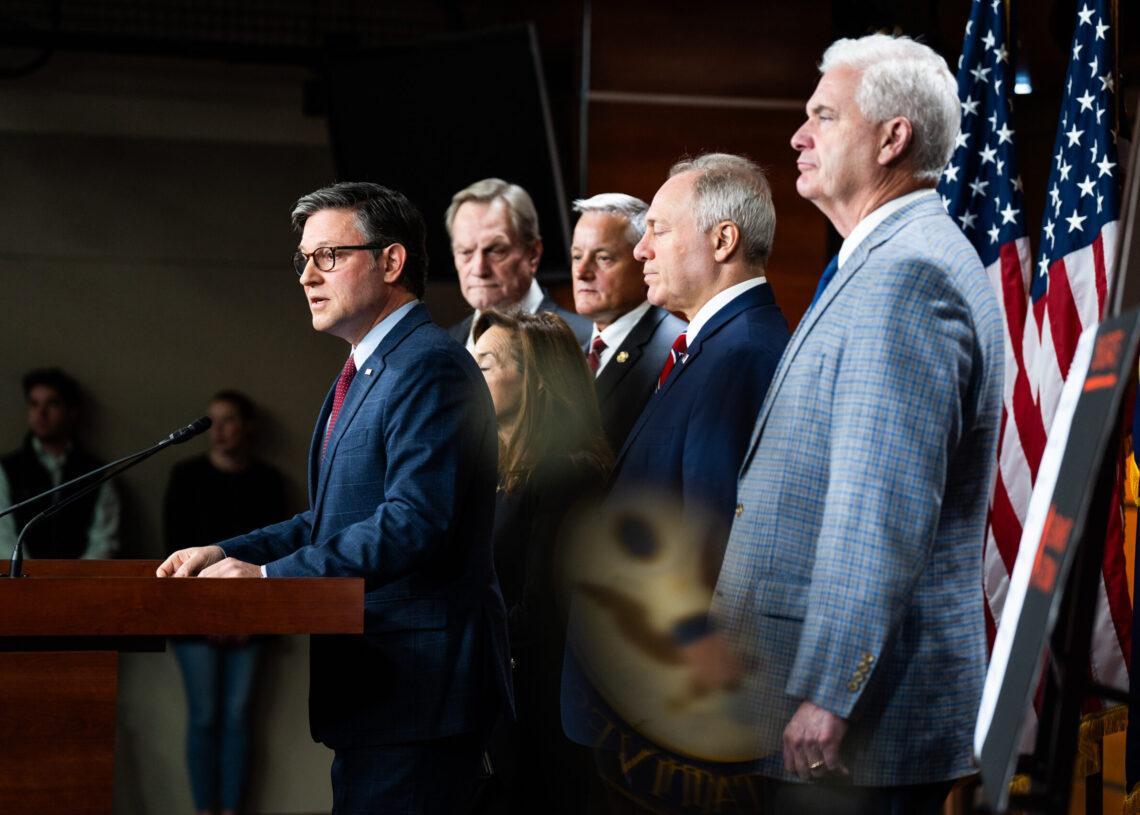The House will return to Washington on Wednesday to vote on a bill to end the longest shutdown in U.S. history.
House Speaker Mike Johnson (R-Louisiana) has kept the chamber out of session since Sept. 19 in an attempt to pressure the Senate to agree to a GOP funding extension, which Senate Democrats repeatedly rejected for weeks.
The House will return to Washington on Wednesday to vote on a bill to end the longest shutdown in U.S. history.
House Speaker Mike Johnson (R-Louisiana) has kept the chamber out of session since Sept. 19 in an attempt to pressure the Senate to agree to a GOP funding extension, which Senate Democrats repeatedly rejected for weeks.
Now House members are making their way back to the Capitol to vote on a new deal brokered among Senate Republicans, seven Senate Democrats and one independent that passed the upper chamber Monday night.
“The long national nightmare is almost coming to an end now, the beginning of the end,” Johnson said on CNN on Monday.
The deal would fund the government through Jan. 30, pass three appropriations bills, reverse more than 4,000 federal layoffs the Trump administration attempted to implement earlier in the shutdown and prevent future layoffs through the end of January. It would appropriate funding for the Supplemental Nutrition Assistance Program, also known as SNAP or food stamps, through September 2026.
The measure would also bring an end to mounting flight delays that have snarled airports across the country as Transportation Security Administration agents work without pay; reopen offices servicing farm loans and other federal beneits; reopen national parks; and ensure that families relying on food aid receive the expected support.
If passed, the bill would end the shutdown that has now lasted 43 days, during which 650,000 federal workers have been furloughed and an additional 600,000 have been forced to continue to work without pay.
The bill is expected to narrowly pass in the House with the support of almost all of the chamber’s Republicans and a handful of moderate Democrats, though the margins are slim and could be affected by which lawmakers are able to arrive amid travel and weather concerns. President Donald Trump is expected to sign it into law.
A majority of House Democrats are expected to vote against the bill, irate that the proposal would not extend the Affordable Care Act subsidies that Democrats have been pushing to protect before they expire at the end of the year.
Since Oct. 1, most Democrats have refused to pass a funding bill until Republican leaders negotiated on health care. Republicans insisted that they would not negotiate until the government was reopened.
The Democratic base and scores of congressional Democrats are livid at the senators who agreed to reopen the government alongside Republicans without an agreed-upon path forward for extending the subsidies. Senate Majority Leader John Thune (R-South Dakota) has pledged to hold a vote on a policy of Democrats’ choosing by mid-December but has not guaranteed that his conference will support it. Johnson has not made the same commitment in the House, fueling anger among House Democrats.
“We’re strongly opposed as House Democrats to this reckless Republican effort to continue to raise the high cost of living on everyday Americans, which is exactly what they’re doing by failing to extend the Affordable Care Act credits,” Minority Leader Hakeem Jeffries (D-New York) said Tuesday.
House Democratic leaders have not had much trouble urging Democratic representatives to vote against the legislation, but as many as five moderates could defect, according to multiple lawmakers and aides familiar with internal discussions.
The few Democratic votes supporting the deal are expected to come from the centrist Blue Dog coalition, including Reps. Jared Golden (D-Maine) and Marie Gluesenkamp Perez (D-Washington), both of whom supported funding the government in September. Rep. Henry Cuellar (D-Texas) also praised the Senate bill this week, writing, “It’s past time to put country over party and get our government working again.”
Several moderate House Democrats wanted to vote for a compromise but consider the bill a nonstarter, because Johnson refuses to promise a vote on health care subsidies. An aide to moderate Democrats also pointed out that there is little incentive to disrupt the momentum from the party’s sweeping victories in last week’s elections.
“In this moment there’s no political incentive to vote yes unless you want people to see the base roasting you in public,” the aide said.
The defections could be enough to overcome any Republicans who may vote against the measure. House GOP leaders have expressed optimism that they will be able to pass the bill without the help of most Democrats.
That’s in large part because Republicans’ ultraconservative cohort, the House Freedom Caucus — which typically opposes funding extensions — has already said it plans to support the legislation. House Freedom Caucus Chairman and Appropriations Committee member Andy Harris (R-Maryland) said Monday that he considered the Jan. 30 extension “a very reasonable compromise,” after initially pushing for a year-long extension.
Any bills that the two chambers have not agreed upon by then, Harris said, should be funded through another extension until after the 2026 midterm elections “in order to not put Americans through this ordeal again.” Most Democrats and Appropriations Committee members in both chambers oppose a full-year funding extension, which would give more leeway to Trump to make decisions on spending.
During the shutdown, the Trump administration has expanded its power over federal spending by moving to lay off federal workers, repurposing leftover funding to ensure military and federal law enforcement members are paid, and cutting programs in Democrat-run states and cities.
One provision in the package has drawn increased scrutiny and outrage from Democrats. It would allow senators to bring lawsuits if law enforcement subpoenas their phone records or other data with notifying them, with potential damages of $500,000 for each violation.
The provision appears to be in response to special counsel Jack Smith’s investigation into Trump’s activities surrounding the Jan. 6, 2021, attack on the Capitol. Senate Republicans have released an FBI document that shows investigators obtained phone data from eight senators for calls made in the days before and after the attack.
During a House Rules Committee meeting on Tuesday night, Rep. Jamie Raskin (D-Maryland) said the provision is “one of the most blatantly corrupt provisions for political self-dealing and plunder of public resources ever proposed in the United States Congress.”
The post House to vote on reopening government after 7-week recess
appeared first on Washington Post.




